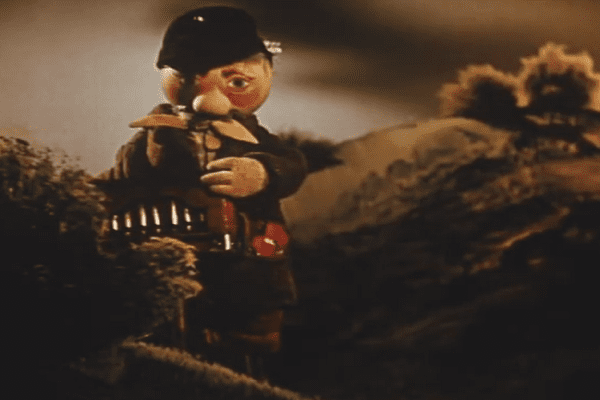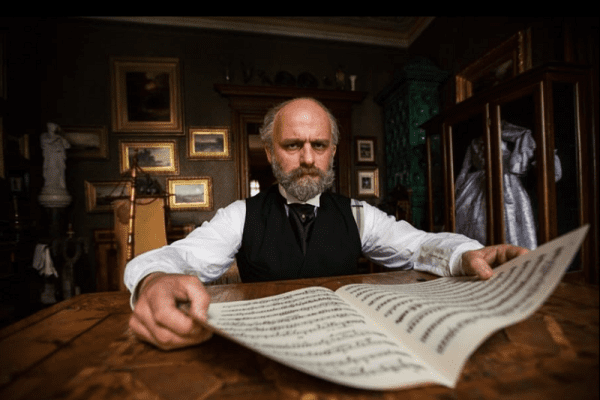Zelary is a Czech film that begins in Prague during World War II where we are introduced to two doctors and Eliska. Eliska is a nurse who works alongside a respected surgeon named Richard who is also her lover. Eliska is a courier and has to learn different stories each time she takes messages or documents to other members of the resistance. One evening that they are together, Richard receives an emergency call involving a patient in need of a risky operation. Because Eliska is there and has the same blood type, she takes part in the transfusion giving her own blood to a sawmill worker from the countryside who is at the verge of death. Eliska’s blood saves his life. The following day she makes a delivery and grows suspicious from the strange man watching her on the stairs. When she arrives at Richard’s apartment later that day she is told by Slavek that Richard has emigrated but he has left her with some money and papers giving her a new identity and she must leave Prague immediately, not even returning to her own apartment because the Gestapo are on to them.
We learn she will be going to the rural country with Joza, the man whose life she saved, who has agreed to hide her. He is large, quiet, oaf-like and seems slow to speak or write but fortunately for her, he has agreed to help her. They arrive in a small village where immediately the townspeople are curious. Many have never seen the likes of a woman like her before, and they wonder what could she possibly be doing with Joza? They are highly suspicious, especially the school teacher who is an angry many and quite xenophobic. Knowing that the Nazi’s immediately kill anyone who helps those who they consider an enemy to their cause, bringing Eliska to their tiny town places all of them in grave danger. She attempts to run away and return to Prague but is apprehended at the train station by the village doctor who informs her that her friend Slavek has been executed by the Nazi’s. He tells her…
The provided excerpt offers just a glimpse into the extensive article. To unlock the full content, become a Patreon patron. Our team meticulously gathers and curates valuable information, sparing you hours, days, or even months of research elsewhere. Our goal is to streamline your access to the best of our cultural heritage. However, a portion of the content is locked behind a Patreon subscription to help sustain our operations and ensure the continued quality of over 1,200 pages of our work.
Alternatively, you can contribute through Venmo, PayPal, or by sending cash, checks, money orders. Additionally, buying Kytka’s books is another way to show your support.
Your contribution is indispensable in sustaining our efforts and allows us to continue sharing our rich cultural heritage with you. Remember, your subscriptions and donations are vital to our continued existence.




















